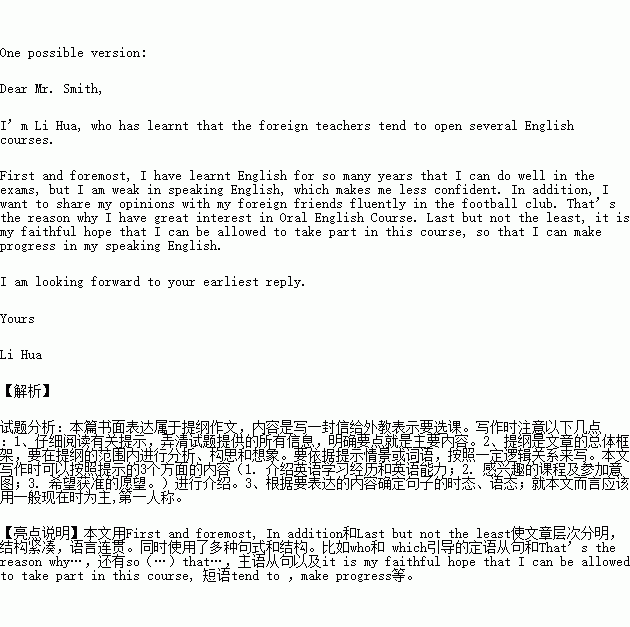题目内容
书面表达
本学期,你校外籍教师拟开设如下课程: 1.英语口语;2.英语写作;3.今日美国。假如你是李华,请给课程负责人Mr.Smith写一份申请书,报名参加其中一门课程的学习,内容必须包括:
1.介绍你的英语能力;2.说明你感兴趣的课程及参加意图;3.表达你希望获准的愿望。
注意: 1.词数100左右;2.可以适当增加细节,以使行文连贯。
Dear Mr. Smith,
___________________________________________________________________________________
___________________________________________________________________________________
___________________________________________________________________________________
Yours,
Li Hua
练习册系列答案
相关题目

